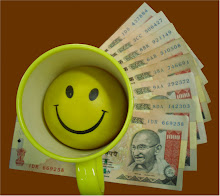NEW DELHI — When India's central bank
admitted discovering 400,000 fake notes
in its currency reserves,
many here woke up to the scale of the
country's counterfeit money problems.
Worse still, the embarrassing admission related
to a survey from the last financial year to March 2009
and authorities say the problem has since got worse.
Police and the central bank have observed a tripling
in the value of notes detected or seized in raids in recent
years and authorities are convinced the source of the
deluge is a familiar foe across the border: Pakistan.
"We have had some success in
tracking the routes and will
continue to counter it, but behind
this racket is an organised
effort in Pakistan and PoK
(Pakistan-administered Kashmir),"
Home Minister P. Chidamabaram said recently.
"It's not just a cottage industry."
Hardly a day passes without news of arrests
of currency smugglers, but police say they are
only catching the small-fry racketeers while the
big fish printers act with impunity over the border.
Many locals here complain of withdrawing fake notes
from bank machines and ever-vigilant shopkeepers
routinely check the water marks that are meant
to protect the larger denomination 500 and 1,000-rupee notes.
A report this year by
the Directorate of Revenue Intelligence (DRI),
a state body that tracks money flows,
said counterfeit currency was brought in
by militants from abroad and then moved
through criminal networks.
The DRI said that 130 million high-quality
counterfeit notes were being smuggled
into India every year and only a fraction were detected.
The security establishment is now clamouring
for more scrutiny of India's banking system
and the central bank, the Reserve Bank of India (RBI),
has instructed nationalised banks
to install sorting machines to weed out fakes.
"If the circulation of counterfeit notes was
not checked then the economy could be
running with over 25 percent fake notes
making the rounds across the country,"
analyst Ajai Sahni, executive director
of the Institute for Conflict Managment.
The RBI is also running awareness campaigns,
even educating schoolchildren to detect fake notes,
and plans to introduce a billion special plastic-coated
notes that are tougher to counterfeit.
Federal police say intelligence gleaned from
arrested suspects suggests the existence of
sophisticated printing presses in Pakistan under
the control of the Inter Services Intelligence agency.
"The ISI prints them in Pakistan, supplies them to
agents in Nepal and Bangladesh, who identify
Indians willing to take the risk of circulating
fake notes," said Sahni.
The quality of the fakes varies from
amateurish to extremely sophisticated.
"You cannot expect a local bank clerk to detect
sophisticated fakes," an intelligence officer told AFP,
asking not to be named.
Police and other agencies seized six million
dollars in fake notes in 2008, nearly triple
the amount seized in 2007 and a majority
of the counterfeit notes were the
500-rupee bill (10 dollars), police figures show.
The RBI said in its last report that the value
of counterfeit notes detected in the banking
channels was over three million dollars in 2008-09,
triple the amount detected in 2007-08.
Some fear that if fake currency continues to increase
at this rate, it will damage the economy.
Economists suggest consumers' trust in
the rupee could be undermined, while
at the central bank complain that fake currency
complicates their deliberations about interest rates.
"The rising trend of fake notes in the market poses
a threat to the economy. Policies, inflation are based
on monetary calculations -- all of which can go wrong
due to fakes," said a policymaker
at the RBI who declined to be named.
K.P. Singh, a police officer in the central
state of Madhya Pradesh who netted
a huge haul in September of 4,000
high-denomination notes was pessimistic
about the possibility of stemming the flow.
"We are arresting the dealers and petty
smugglers operating in India but the
kingpins are based in Pakistan," he told AFP.
"It is in Pakistan the problem
begins and can only be ended there."


No comments:
Post a Comment